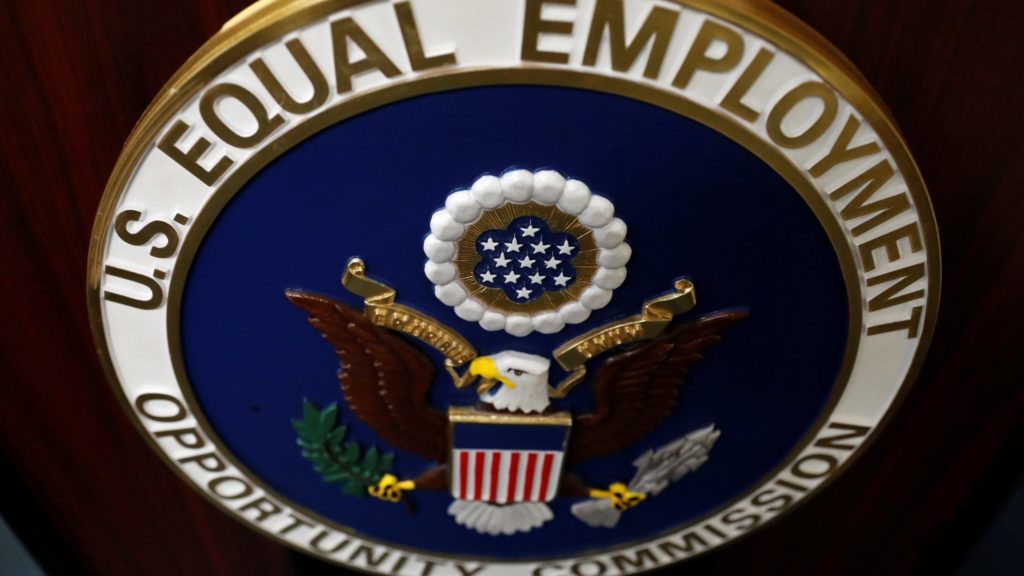The Catholic Benefits Association recently filed a motion for preliminary injunction against the Equal Employment Opportunity Commission over two regulations it says violate Catholics' religious beliefs.
The group, which represents 87 dioceses and more than 1,400 other Catholic entities, objected to two regulations issued earlier this year. One is the final regulation issued for the Pregnant Workers Fairness Act, granting workers protections for time off and other job accommodations for pregnancy-related medical conditions such as miscarriage, stillbirth and lactation -- but also for abortion, which was opposed by many of the bill's supporters, including the U.S. Conference of Catholic Bishops.
The other was a provision of the EEOC's "Enforcement Guidance on Harassment," which CBA CEO Doug Wilson argued in a statement means that "if an employer declines to use an employee's preferred pronouns or refuses to grant him or her access to bathrooms or locker rooms for the opposite sex, such decisions would constitute actionable sexual harassment."
Both regulations, Wilson said, "imposed mandates unacceptable for Catholic employers and never intended by Congress."
"After careful analysis there was no alternative but to litigate," he said. "And now we are."
Martin Nussbaum, CBA's general counsel at the Colorado Springs, Colorado-based First and Fourteenth law firm, told OSV News "what happened this spring was both HHS and the EEOC issued these series of regulations, and the only way for Catholic employers to be protected from them is to seek relief through the court system, unfortunately."
The CBA separately sued the U.S. Department of Health and Human Services and the EEOC over an HHS regulation issued in May that would expand civil rights protections for patients by prohibiting health care providers and insurers that receive federal funding from discriminating against those who seek treatment related to their gender identity or sexual orientation.
In June, the Supreme Court overturned a legal doctrine known as Chevron deference, reducing the regulatory power of federal agencies. Under the terms of that precedent -- a product of the Supreme Court's 1984 ruling in Chevron U.S.A., Inc. v. Natural Resources Defense Council, Inc., which upheld an Environmental Protection Agency regulation -- if Congress has not directly addressed a particular matter in a particular law, the courts must give "reasonable" deference to a federal agency's interpretation of that law in its implementation.
Asked by OSV News if that ruling impacted their case, Nussbaum said that if Chevron had been still in place for the CBA's legal challenge to the EEOC regulations, "Chevron would say that the court should defer to the bureaucracy that made these rules, it would put a heavier burden on us to challenge it."
Arguing the Pregnant Workers Fairness Act regulation was broadened beyond the scope of congressional intent, Nussbaum said, "How does a bill that is supposed to be supporting pregnancy and childbirth become in the hands of the bureaucracy a regulation that requires them to also support abortion?"
A spokesperson for the EEOC did not immediately respond to a request for comment from OSV News. When it issued the latter regulation in April, EEOC Chair Charlotte A. Burrows said in a statement that harassment "both in-person and online, remains a serious issue in America's workplaces."
"The EEOC's updated guidance on harassment is a comprehensive resource that brings together best practices for preventing and remedying harassment and clarifies recent developments in the law," she said. "The guidance incorporates public input from stakeholders across the country, is aligned with our Strategic Enforcement Plan, and will help ensure that individuals understand their workplace rights and responsibilities."
In a declaration in CBA's filing related to the EEOC's enforcement guidance, Archbishop Bernard A. Hebda of St. Paul and Minneapolis, said that requiring Catholics to identify persons "by a sex other than their God-Gifted sex would be to require him or her to act against central, unchangeable and architectural teachings of the Catholic faith."
The CBA's membership comprises Catholic dioceses, hospitals, school systems, religious orders and other entities that offer their employees insurance and benefit programs that adhere to Catholic teaching.
The CBA's legal action was filed July 24 in the U.S. District Court for the District of North Dakota's Western Division.

